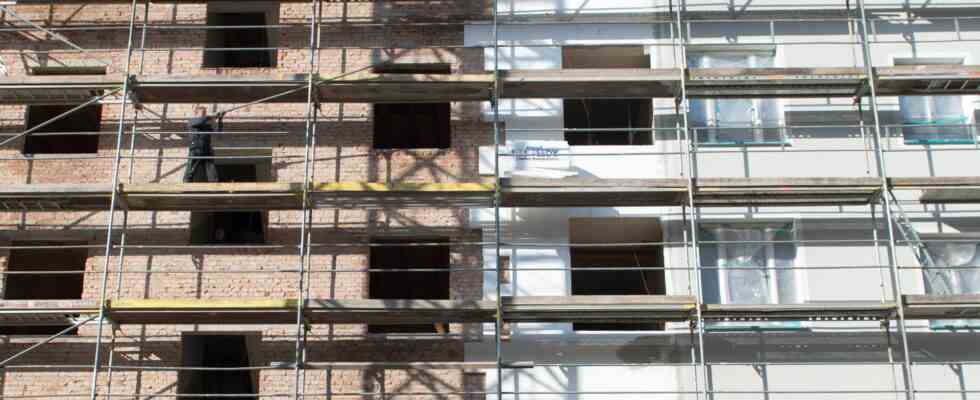Status: 25.12.2022 09:00 a.m
A new heating system or better insulated windows – this year more people than ever have decided to do so and have received state subsidies. The high heating costs are also likely to play a role here.
State subsidies for energy-efficient refurbishment of houses and apartments have risen to a record level this year. The Federal Office of Economics and Export Control (BAFA) paid out around 2.6 billion euros. That was an increase of 85 percent compared to the previous year, the authority told the dpa news agency. In 2021, around 1.4 billion euros flowed.
With the funding, owners receive support for the renovation of their building, which permanently saves energy costs. For example, the use of new and the optimization of existing heating systems, which mainly work with renewable energies, are promoted. There is also money for the insulation of exterior walls and roofs or the replacement of windows and exterior doors.
Ten billion euros approved
According to the Federal Office, state funds of around ten billion euros were even approved – about twice as much as in the previous year. However, the approval is only the first stage of the procedure: The money is reserved for the applicants, and it is only paid out after the remediation measure has been implemented and checked. The number of applications for funding from BAFA also doubled within a year to more than 740,000.
The federal funding is intended to help increase the renovation rate and achieve the climate targets for the building sector. The aim is for the building stock to be climate-neutral by 2045. However, many buildings in Germany have only been partially or not at all renovated in terms of energy efficiency.
Subsidies also for material with personal contribution
At the end of July, the federal government focused the funding on the renovation of existing buildings instead of on new construction, because this is where the greatest climate protection effect is expected. A budget of 13 billion euros is planned for 2023.
From January, material costs for personal work will also be subsidized again – a reaction to the shortage of craftsmen. In the future, climate measures on new buildings are to be largely funded via low-interest KfW loans. According to the federal government, there should be a new guideline for this on March 1st. Until then, new buildings of efficiency house level 40 with a sustainability class will still be supported according to the old criteria.

